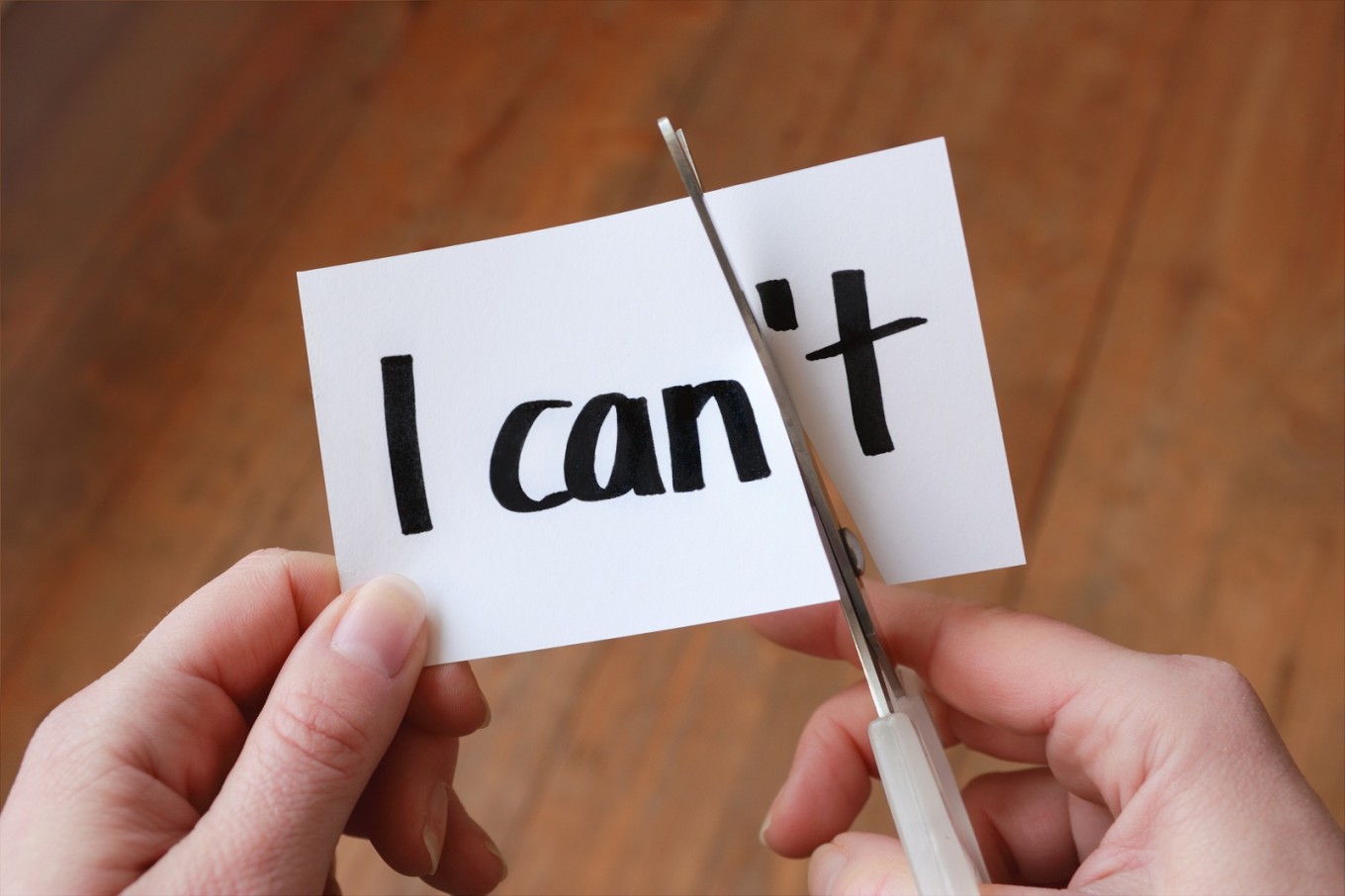Popular Reads
Top Results
Can't find what you're looking for?
View all search resultsPopular Reads
Top Results
Can't find what you're looking for?
View all search resultsEight scientifically proven ways to attain self-confidence
We all, at some point, learn the traits confident people have and how they derive benefits from them, yet we struggle to emulate them. The “fake-it-till-you-make-it” mantra will only get you so far in attaining self-confidence.
Change text size
Gift Premium Articles
to Anyone
Perhaps the most essential piece of advice you’ll receive over the course of your lifetime is “be confident”.
We all, at some point, learn the traits confident people have and how they derive benefits from them, yet we struggle to emulate them. The “fake-it-till-you-make-it” mantra will only get you so far in attaining self-confidence.
Confidence requires self-awareness in what one is good at and what one lacks, and determines the way in which one communicates this information to others. This contrasts with arrogance, where one believes they are better at something than they actually are; or low self-esteem, where one underestimates his or her own value.
The following is a list of scientifically-backed ways to gain self-confidence as compiled by Reader's Digest.
Read also: Is the midlife crisis real? Economists and psychologists can't agree
Adjust your body language
In her widely shared TED Talk “Your body language may shape who you are”, social psychologist Amy Cuddy of Harvard Business School reminds us that body language is not only a means to make judgements and inferences about others but also a tool that can be employed to shape our life outcomes.
According to her research, positioning our bodies to occupy more space leads to heightened testosterone levels and lowered cortisol levels—a combination that reduces stress and promotes confidence. In fact, anything that can make you expand your posture signals your body (and brain) that you are capable, and in command. Although these changes seem minute, they can go a long way for most of us who spend a lot of our days seated, at school or at work.
Professor Cuddy also suggests holding “power poses” for at least two minutes, to boost confidence. Her best power pose, called “the Wonder Woman”, involves standing akimbo, that is: with your hands on your hips and your elbows turned outward. Alternatively, sit; place your feet up on your desk or table; interlace your hands and place them behind your head with your elbows pointing out. This pose, commonly seen in movies, is called “the Wall Street”.
Practice the Golden Rule, in reverse
While some motivational speakers may have promised that paying yourself effusive compliments in the bathroom mirror will help boost your confidence, it might be more worthwhile to gain an awareness of your strengths and weaknesses, and be more forgiving to yourself about your flaws rather than trying to convince yourself that you’re awesome.
According to professor of educational psychology Kristin Neff from the University of Texas at Austin, “when our sense of self-worth stems from being a human being intrinsically worthy of respect — rather than being contingent on obtaining certain ideals — our sense of self-worth is much less easily shaken”.
Remember it is alright to make mistakes; all of us do. Try practicing the Confucian Golden Rule in reverse: treat yourselves with the same kindness as you treat others.
Read also: What they don't talk about when they talk about turning 20
Avoid negative self-talk
Ever find yourself feeling that the world seems to be conspiring towards your misfortune? It is important to erase the sentences “This always happens to me” and “This is the story of my life” from our daily lexicon, for two reasons: first, we’re convincing ourselves of a reality that is untrue; second, we’re eroding our self-confidence.
In his book Life as Sport: What Top Athletes Can Teach You About How to Win in Life, psychologist Jonathan Fader, PhD recounts how revered baseball fielder David Winfield reminded him that slumps are not slumps but “periods of adjustment” or “statistically acceptable variations”. So, the next time you miss your flight or lose your elevator access card to the workplace, remember that these things happen to each one of us every once in a while.
At times of panic, turn your anxiety into excitement
Most people might tell you to take a deep breath and calm down during moments of anxiety, but, as many of us may already know, that may be precisely the wrong thing to do.
According to assistant professor Allison Wood Brooks of Harvard Business School, studies have shown that “when [people] reappraise their anxiety as excitement, they actually gave better public speeches, they sang better in our karaoke lounge, and they did better on math tests”.
It sounds too simple to be true, but telling yourself that you are excited instead of anxious allows you to think of the situation at hand as an opportunity rather than a threat.
Read also: A look at vintage consumption as psychological defense, sign of societal problem
Exercise regularly
Articles on the myriad benefits of exercise are ubiquitous, but if you need an additional reason to break a sweat: it might help you gain confidence, hence boosting your overall productivity.
Cue yourself to confidence
In her book How to Have a Good Day: Harness the Power of Behavioral Science to Transform Your Working Life, management consultant and executive coach Caroline Webb details an intriguing study on concentration in which “volunteers who wore a lab coat made half the number of errors of people who wore their street clothes, presumably thanks to an association between lab coats and high academic performance.
Sure enough, when the coat wearers were told that the white coat belonged to a painter … their scores dropped”. This suggests that suggestion can play a significant role in boosting our confidence (and, subsequently, our performance). Small changes like those to clothing can yield great rewards.
Read also: How to overcome the stress of job searching
Smell great
A University of Liverpool study used male subjects and had half of them apply a scented deodorant with antimicrobial ingredients while the other half used an unscented product with no antimicrobial ingredients. The men who used the scented product reported feeling more confident and attractive as compared to the other group. Afterward, the men were photographed and videotaped, and women were then asked to look at their photos and silent videos and choose which men were more confident and attractive. Interestingly, the women all chose the men wearing scented deodorant, even though the women had no way of knowing this.
Researchers speculate that since the scented deodorant made the men feel better about themselves, it led them to carry themselves in a way that conveyed positive attributes.
Note your weekly successes, however trivial (or otherwise) they may seem
Keeping a list of successes—however small or otherwise—has the power to fortify motivation and heighten positive emotions like joy and pride. Along with helping to maintain a sense of confidence, noting your accomplishments weekly can make your creative productivity more sustainable as you experience a sense of progress over time.
The application of this strategy is not limited to workplace goals — it can be applied to workouts, relationships and household chores as well. (afr/kes)











